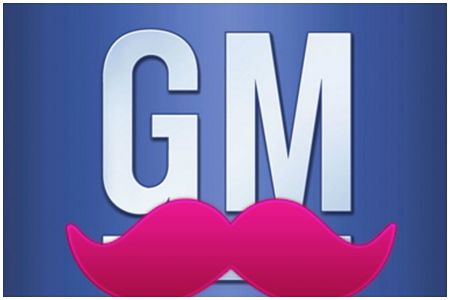General Motors (GM) last week invested $500 million in Lyft, the ride-hail company, announcing a strategic alliance to create an integrated network of on-demand autonomous vehicles in the U.S.

GM says it wants to help the company continue the rapid growth of its successful ridesharing service. In addition, GM will hold a seat on the company’s board of directors.
“We see the future of personal mobility as connected, seamless and autonomous,” said GM President Dan Ammann. “With GM and Lyft working together, we believe we can successfully implement this vision more rapidly.”
John Zimmer, president and co-founder of Lyft, said: “Working with GM, Lyft will continue to unlock new transportation experiences that bring positive change to our daily lives. Together we will build a better future by redefining traditional car ownership.”
Key elements of the GM and Lyft alliance include:
Autonomous On-Demand Network: The joint development of a network of on-demand autonomous vehicles will leverage GM’s deep knowledge of autonomous technology and Lyft’s capabilities in providing a broad choice of ride-sharing services.
Rental Hub: Beginning immediately, GM will become a preferred provider of short-term use vehicles to Lyft drivers through rental hubs in various cities in the U.S.
Connectivity: Lyft drivers and customers will have access to GM’s wide portfolio of cars and OnStar services, leveraging two decades of experience in connectivity. This will create a richer ride-sharing experience for both driver and passenger.
Joint Mobility Offerings: GM and Lyft will also provide each other’s customers with personalized mobility services and experiences through their respective channels.
GM and its partners produce vehicles in 30 countries, and the company has leadership positions in the world's largest and fastest-growing automotive markets. GM, its subsidiaries and joint venture entities sell vehicles under the Chevrolet, Cadillac, Baojun, Buick, GMC, Holden, Jiefang, Opel, Vauxhall and Wuling brands.
Lyft was founded in June 2012 by Logan Green and John Zimmer to reconnect people and communities through better transportation. Lyft is the fastest growing rideshare company in the U.S and is available in more than 190 cities. Lyft is preferred by drivers and passengers for its safe and friendly experience, and its commitment to driving positive change for the future of our cities.
GM's investment in Lyft is seen as a hedge against Uber's rapid growth. Uber has made an ambitious drive to dominate the world’s rideshare market with considerable success – rising to a valuation of more than $60 billion. CEO Travis Kalanick talks openly of wanting to make personal car ownership a thing of the past. This is anathema to car makers, who have helped forge a world where three cars in a garage is part of the American dream.
Asked by reporters "why partner with David and not Goliath in this effort," GM’s Ammann would only say that his company and Lyft share "a common point of view" and a "common perspective." The subtext being: a world where Uber does not totally control the means of transportation.
"With companies like Uber and Google leading the game for ride-sharing or for-hire vehicles, I think that having partnerships between other major corporations is a way to compete," said Jeffrey Miller, an autonomous car expert at the University of Southern California. "GM hasn't been investing as substantially in technology as other companies, such as Tesla, Uber, Google, Mercedes, etc. GM has been very open about partnering with other companies to include technology in their vehicles. This isn't a surprising announcement at all, and due to their reduced investment in technology professionals in the company, I think this is a good move for them."
"I think over time GM and Lyft may be able to compete with Uber and Google, but they have some catching up to do since they weren't very early adopters,” he added.
Toyota and Ford, two of the world's biggest automakers, invited rival car companies to join them to counter the push by Apple, Alphabet (Google), Tesla Motors Inc. and others into self-driving cars, or what the industry calls autonomous vehicles.
Major automakers are trying to prevent Silicon Valley from dominating the future of self-driving cars and ride-sharing, and are also investing as a way to see whether Lyft and Uber are on the way to making money, said Matthew Stover, automotive analyst with Susquehanna Financial Group.
Last month, GM Chair Mary Barra wrote an essay predicting that 2016 would be the year that "Detroit takes on Silicon Valley."
"I have committed that we will lead the transformation of our industry," she wrote. "No matter how our customers chose to get from one destination to another, we will provide them with choices that make their life better and easier."
